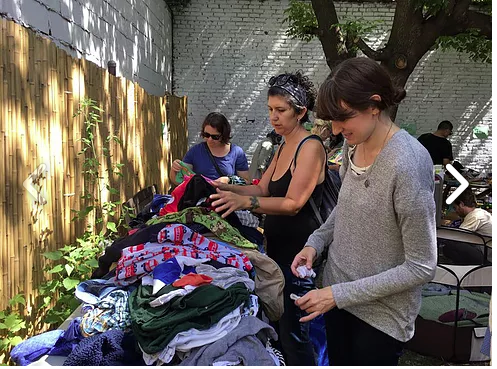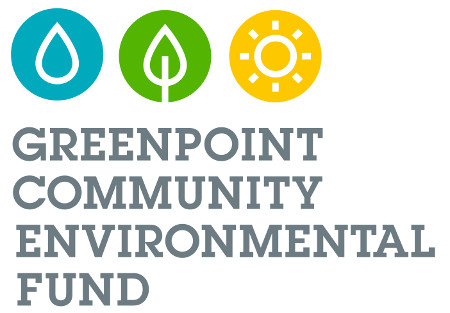A Marxist Perspective
 At the outset of his masterwork, Das Kapital, Marx famously noted that the wealth of capitalist societies appears as, “an immense collection of commodities;” commodities being man-made creations that bear exchange-value when circulating in the marketplace. The act of consuming these commodities through monetary purchase discharges this value, releasing a currency of energy that fuels the capitalist system much as the cleaving of an atom of uranium fuels a nuclear reaction.
At the outset of his masterwork, Das Kapital, Marx famously noted that the wealth of capitalist societies appears as, “an immense collection of commodities;” commodities being man-made creations that bear exchange-value when circulating in the marketplace. The act of consuming these commodities through monetary purchase discharges this value, releasing a currency of energy that fuels the capitalist system much as the cleaving of an atom of uranium fuels a nuclear reaction.
Removing commodities from circulation can, in this context, be seen as denying capitalism its fuel. But here is where it gets tricky: simply remanding an object to the wastelands of capital — the landfill, the incinerator, the bottom of the ocean — still upholds the considered commodity’s alleged exchange-value, albeit in shadow form, as exhausted. And while there is still capitalist activity at the margins of any landfill or sewage plant (buttressed by the State, to be sure), the dark heart of these wastelands, like the bottom of the ocean, is an exhausted, mysterious, dark place, beyond the touch of capital’s burnishing light, wherein monsters dwell. We feed those monsters at our own peril.
To simply trash something, therefore, still obeys the logic of the capitalist compact and to dire effect. The true act of removing a commodity from circulation rather occurs only when that object is gifted to another person. The distinction is subtle, but profound. The act of giving a commodity recognizes the key attributes of that commodity’s role in society — its extant use-value, its idealized exchange-value, its status as a work valorized by labor — while simultaneously refuting that role in the marketplace. This is why objects freely given, whether at birthdays, under the Christmas tree, or simply left on a New York City sidewalk, are so refreshing to our sense of humanity itself. Gifts refute the cynicism of the capitalist system, so memorably summed up by Oscar Wilde as one that “knows the price of everything and the value of nothing.”
Of course, these observations are not new: The great cultural historian Lewis Hyde, in his landmark 1983 work The Gift, made the compelling case that the currency established by systems of gift-exchange is social, as opposed to capital, noting:
“Unlike the sale of a commodity, the giving of a gift tends to establish a relationship between the parties involved. When gifts circulate within a group, their commerce leaves a series of interconnected relationships in its wake, and a kind of decentralized cohesiveness emerges.”
Hyde was primarily concerned with the phenomena of the gift as expressed in the work of art (which he felt is degraded by its association with commodity), but the dynamics he described could as easily apply to any form of non-valued exchange.
ENTER THE SWAP
 Swaps are, of course, deeply rooted in the human experience. One need only observe young children to see the social currency of swappage in action: Children are notorious exchangers of valuable objects, yet they have little concept of monetary or market value. Rather, their exchanges are clearly undertaken to reinforce social bonds, articulated primarily through play.
Swaps are, of course, deeply rooted in the human experience. One need only observe young children to see the social currency of swappage in action: Children are notorious exchangers of valuable objects, yet they have little concept of monetary or market value. Rather, their exchanges are clearly undertaken to reinforce social bonds, articulated primarily through play.
Swaps among adults are rarer, but occupy the same role, if diffused across a wider network of friends and acquaintances. They are first and foremost social rituals, reinforcing Hyde’s “decentralized cohesiveness” within larger networks, whether cities, internet groups, or communities of interest. And they are similarly undertaken in a spirit of playful togetherness.
Town Square’s Greencycle Swaps are a clear demonstration of this ethos: Established as a part of the first Go Green! Brooklyn Festival in 2008, the swaps proved so successful that they are now a quarterly program. Embodying the spirit of the festival itself — to promote sustainability within the communities of North Brooklyn — Greencycle Swaps offer an oasis of gift-exchange within the capitalist desert of present-day New York City.
The mechanics are deceptively simple: objects are brought, and exchange is facilitated. A donation is sought, but not required. In an ironic twist, the activity of the swap always nets a surplus in the form of excess clothes and objects. These extra objects are then donated to the Home Life Services shelter system in Brooklyn, where they serve the needs of NYC’s homeless population.
The whole system functions as an admirable post-growth circular economy. Commodities bearing value are removed from the marketplace, and re-assigned a more benevolent social value through the architecture of the swap. This social value reinforces the bonds of community, both in the direct active exchange (the swaps are social events, fun for friends and families, held in the garden of a public library), and in the ancillary exchange with the people served by the Home Life shelters. It is no overstatement to say that the net result is a better Brooklyn.
PAN-SOCIALISM
To end with an example: at the most recent swap, in the fall of last year, I came across a 9” orange enameled iron frying pan: Le Creuset, vintage, and effortlessly handsome. I could scarcely believe my good fortune. I had been seeking one of these for many years, but was reluctant to pay the $40 – $100 that they usually fetch.
Looking to my left and right, I saw no obvious owner nor did I see anyone else eyeing this prize. I put it in my bag and felt strangely uplifted, made aware of not only the material bounty of my community here in North Brooklyn but also, of a social bounty that made such a find possible.
I took the pan home, where it precipitated a root-level re-arranging of my pot holding pegboard above the stove. It sits there still, a beloved talisman of one small moment of respite from the capitalist storm that swirls over our nation, year in, year out, nestling everywhere, settling everywhere, establishing connexions everywhere, constantly revolutionizing the instruments of production, and thereby the relations of production, and with them the whole relations of society. And my eggs taste all the better for it.




